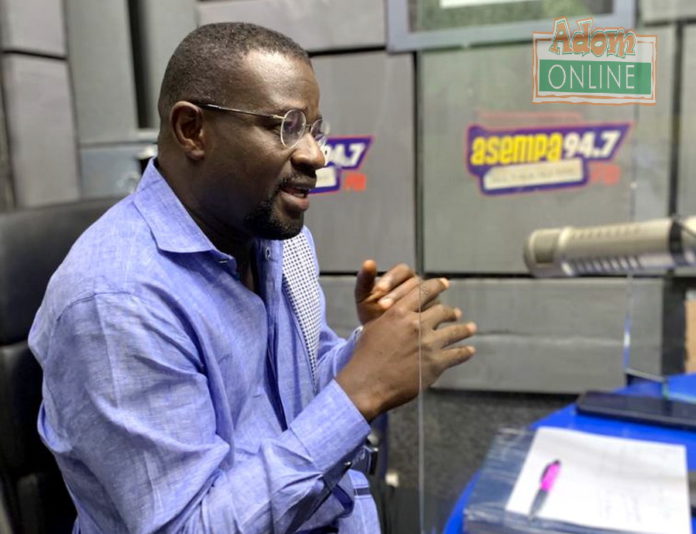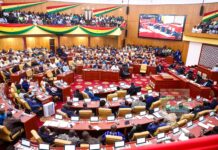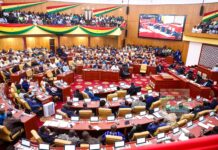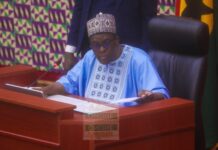
The Majority Chief Whip, Frank Annoh-Dompreh, has described the amount of money paid to Members of Parliament (MPs) at the end of every Parliament as accumulated salary arrears and not End of Service Benefits (ESB).
He said the emolument committee that was constitutionally put together to determine the salaries of MPs as Article 71 public office holders was often unable to determine the salaries of the members at the dawn of a new Parliament.
“So, it is arrears accrued and at the end of the four years, these salary arrears, not end of service benefits, are paid to us,” he said.
Clarity
Sharing his perspective on the public anger against MPs for taking huge sums of money at the end of every Parliament, Mr Annoh-Dompreh told the Daily Graphic: “If an MP is supposed to take an X-amount, they will say they are paying on account and when the determination is made, then the difference is added.
“And if you factor inflation and all that, the MPs lose out and we as public office holders must confront and speak to it and we do not have to shy away from it.”
In 2013, a total of GH¢47 million was paid by the government as “ex gratia” to the 230 MPs who served in the Fifth Parliament of the Fourth Republic.
Out of the amount, the MPs who retained their membership of the House after the December 7, 2012 elections received GH¢276,000 each, while those who lost their seats were paid GH¢311,000 each.
Mr Annoh-Dompreh noted that MPs were public office holders, hence the public reserved the right to know about the entitlement that should be paid to legislators.
“I am talking about the extent of transparency that we should be giving to the issue but we have not done that and I am not putting the blame on anybody.
“So, rightly or wrongly now that supposedly the information about MPs’ entitlements is out there in public, I think we should discuss it as a country and we should not shy away from it since there is nothing to feel sorry for. MPs had not committed any crime,” he said.
He pointed out that Parliament had not enjoyed the conditions of service that the Judicial Service and the Executive were entitled to.
“So, we need to ask ourselves if we do have equity. Are we treating the three arms of government with respect and equality?” he quizzed.
He, therefore, stressed the need for MPs to be bold enough to speak to the matter for the public to appreciate their concern and bring finality to vehicle loans for parliamentarians.
“The misconception surrounding ESB is putting MPs in a very bad light and we have become the whipping boys of public criticism.
“We should call for the same treatment the Judiciary and the Executive have been given,” he said.
Public education
The MP for Nsawam-Adoagyiri noted that very often the media had contributed to putting up the impression that MPs were paid ex gratia at the end of every Parliament, drawing public anger against parliamentarians.
“We do not take end of service benefits and I challenge anybody to prove me otherwise,” he said.






